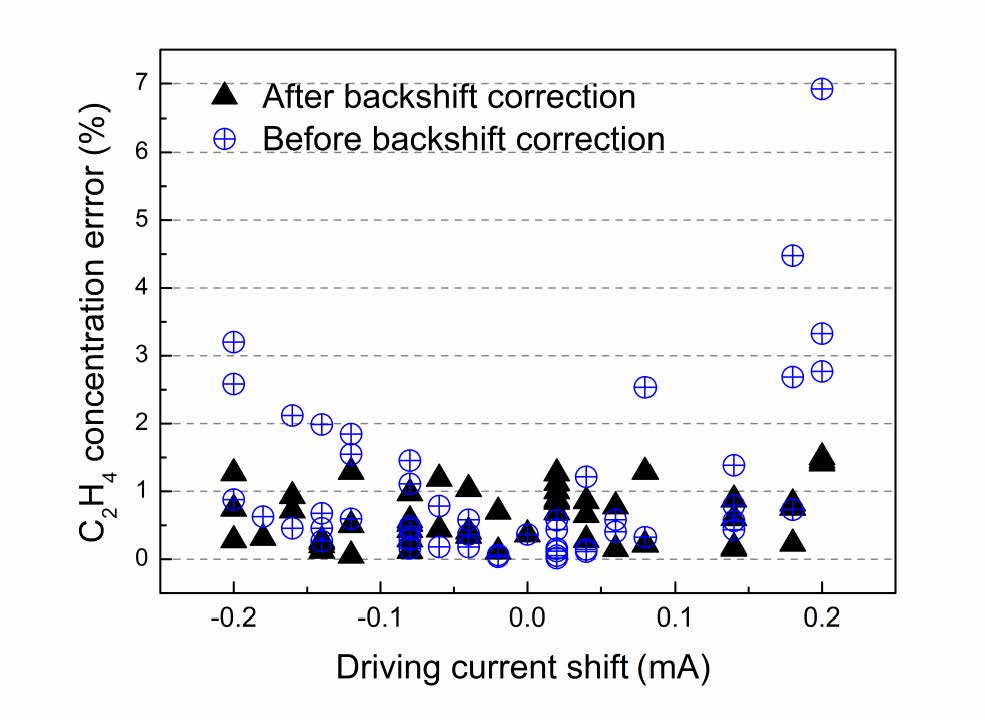In this work, a tailored extreme learning machine (ELM) algorithm to enhance the overall robustness of gas analyzer based on the tunable diode laser absorption spectroscopy (TDLAS) method is presented. The ELM model is tailored through activation function selection, input weight and bias searching, and cross validation method to address the analyzer robustness issues for industrial process analysis field application. The two particular issues are the inaccurate gas concentration measurement caused by the process gas background components variation, and the inaccurate spectra shift calculation caused by spectral interference. By using our algorithm, the concentration error is reduced by one order of magnitude over a much larger stream pressure and component range compared with that obtained by classical least square (CLS) fitting methods based on reference curves. Additionally, it is shown that with our algorithm, the wavelength shift accuracy is improved to less than 1 count over 1000 counts spectra length. In order to test the viability of our algorithm, a trace ethylene (C2H4) TDLAS analyzer with coexisting methane was implemented, and its experimental measurements support analyzing robustness enhancement effect.

